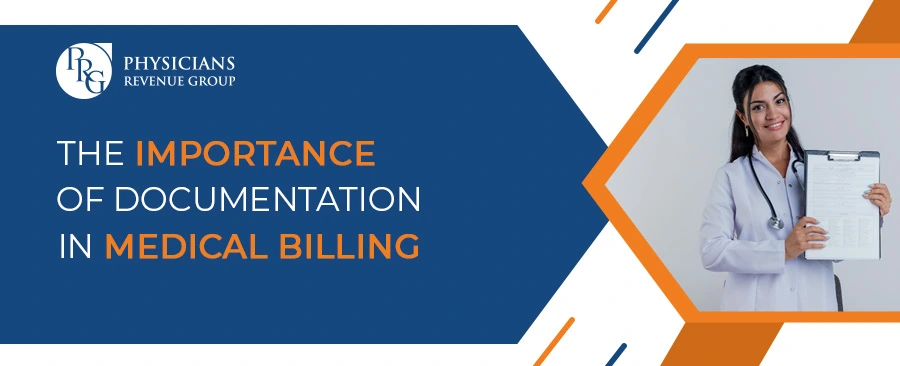
Email: info@prgmd.com | Call: +1 (630) 242-6474
Business hours: 9:00 to 5:00 | Monday to Friday
Email: info@prgmd.com | Call: +1 (630) 242-6474
Business hours: 9:00 to 5:00 | Monday to Friday

Table of Contents
ToggleProper documentation in the healthcare industry is vital for coding and medical billing services. Accurate documentation in medical billing is essential to offering a complete picture of a patient’s medical history. Access to complete documentation is how healthcare professionals can treat or diagnose a patient properly.
The patients are susceptible to many risks if the medical documentation and data are:
Proper documentation in medical billing records the services rendered to a patient. These records include services, including diagnostic tests, medications, and treatments. Documentation in medical billing is thus used to produce claims for reimbursements from insurance companies in addition to Medicaid and Medicare.
The types include:
Proper and clear documentation is vital in medical billing as it helps prevent errors and reduces the possibility of claim denials. Accurate, well-organized, and complete documentation leads to correct billing, re-winning of revenue, and avoiding ethical and legal concerns.
Medical necessity is the prime condition for reimbursement on a medical claim. Thus, documentation supporting the claims must accurately demonstrate the medical necessity of the services rendered.
Comprehensive and concise documentation in healthcare billing helps make the billing process accurate, efficient, and even compliant with industry standards. Medical providers must meticulously document a patient’s medical condition and mention why the services provided were necessary for treating a particular disease.
Without adequate and accurate documentation of medical necessity, the claims can be rejected or denied – and that brings us to:
Documentation in medical billing must be complete and accurate. Furthermore, it must contain all necessary details of a patient’s treatment, diagnoses, and follow-up care. Doing so ensures that the billing process stays accurate and then helps reduce the likelihood of denials.
It is essential to review your prior records and encounters with the latest EMRs ; this has become a relatively more straightforward process. Some of the health records even facilitate you to view documents from other facilities in the same system.
Accurate documentation of medical claims and patients’ medical records is vital for the following three reasons:
Medical necessity documentation comes with the exact reasons for the patient’s visit to a medical facility and the rationale for keeping them there for treatment.
CPT codes are similar to ICD-10 codes; the CPT codes, on the other hand, identify the provided services. Furthermore, the ICD-10 codes represent a patient’s diagnosis.
Share:
Categories
Recently Added

What is a TPE Audit in Healthcare

What is an ABN in medical billing?

What does a Clearinghouse do During Claims Submission?
We Would Love to Assist You!
We treat your data confidentially and don’t share any information with a third party.